Already bracing ourselves for another goodbye in a few weeks, it’s time to look back at 12 months of ceaseless efforts to further advance the user experience for authors, reviewers, editors and readers alike.
What’s in it for ARPHA that keeps us motivated all year round? Well, it’s a win-win: we get to stay at the top of our game within the scholarly publishing and technological landscape, while honouring our word to client journals, publishers and platforms to provide a state-of-the-art publishing solution sewn with the genuine understanding of a fellow scholar.
Frankly speaking, having observed a rapid expansion in our journal portfolio – which currently counts over 50 peer-reviewed and exclusively open-access scholarly titles – over the past few years we’ve never been so enthusiastic to draw the line of another “most successful year” and set sights on our 2020 targets.
Without further ado, here are the key innovations and milestones achieved by ARPHA in 2019.
ORCID integration to connect researchers to research
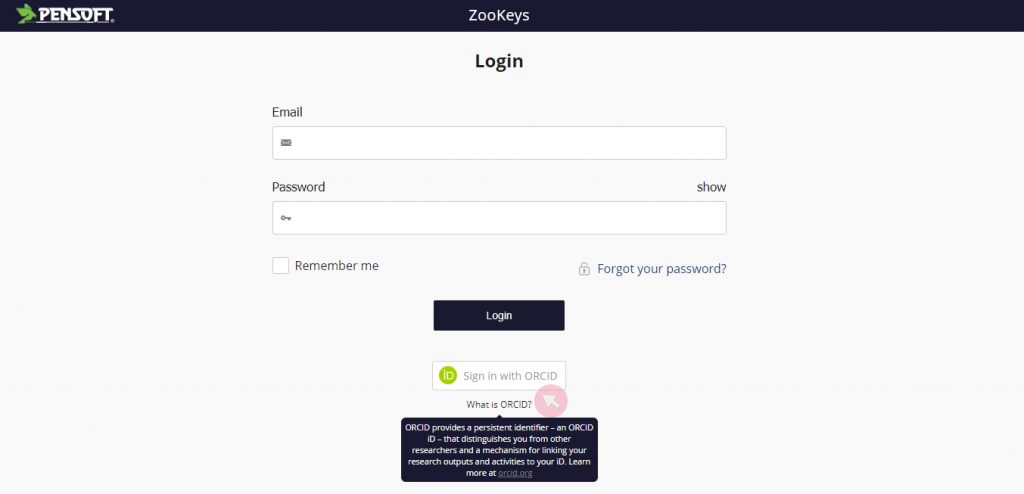
Would a researcher trust a journal with his/her manuscript if it said the research paper will not be assigned with a Digital Object Identifier (DOI) upon publication?
Likewise, thanks to ORCID, researchers are also provided with a unique digital identifier to provide a persistent link between their identity and their work across platforms. Apart from papers, the latter includes various professional activities such as grant applications as well as links to external profiles, for example, Web of Science ResearcherID or LinkedIn.
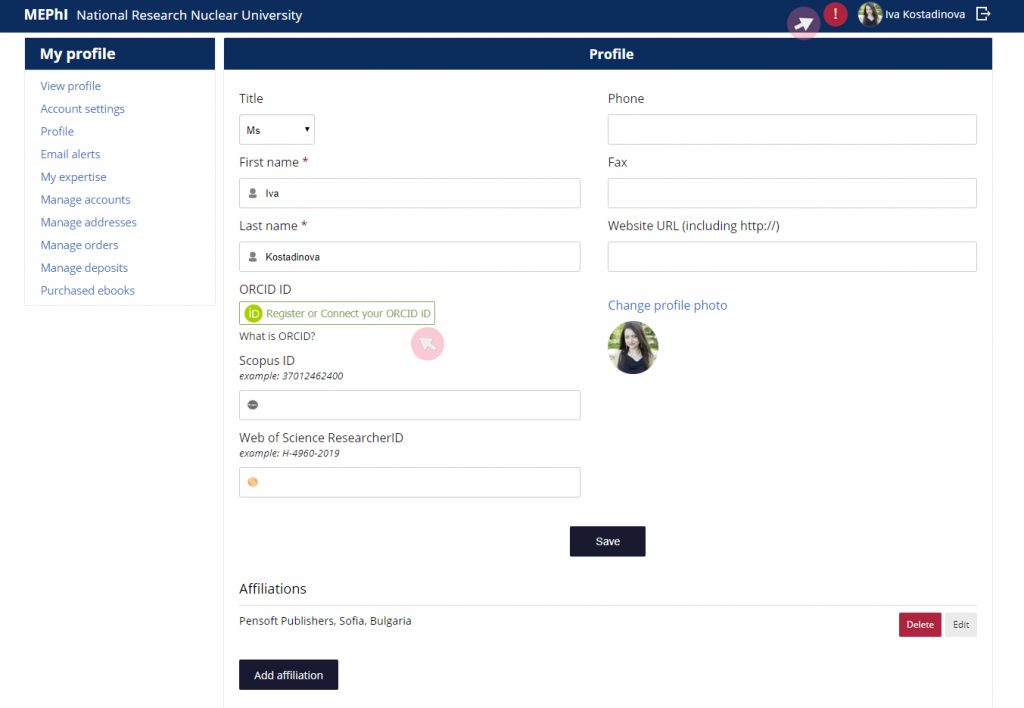
To ensure that their work published in an ARPHA-hosted journal is automatically logged on their ORCID account, the platform allows users to sign in using their ORCID credentials. Alternatively, they can add them to their existing profile and merge the two to avoid potential duplicate records and confusion.
Look out for the exclamation mark next to your user name: it reminds you that you haven’t taken full advantage of the ARPHA-ORCID integration just yet.
Visit ORCID’s website to learn more about their mission to connect researchers to research.
Now on display: ORCID ID, Web of Science ResearcherID and Scopus Author ID
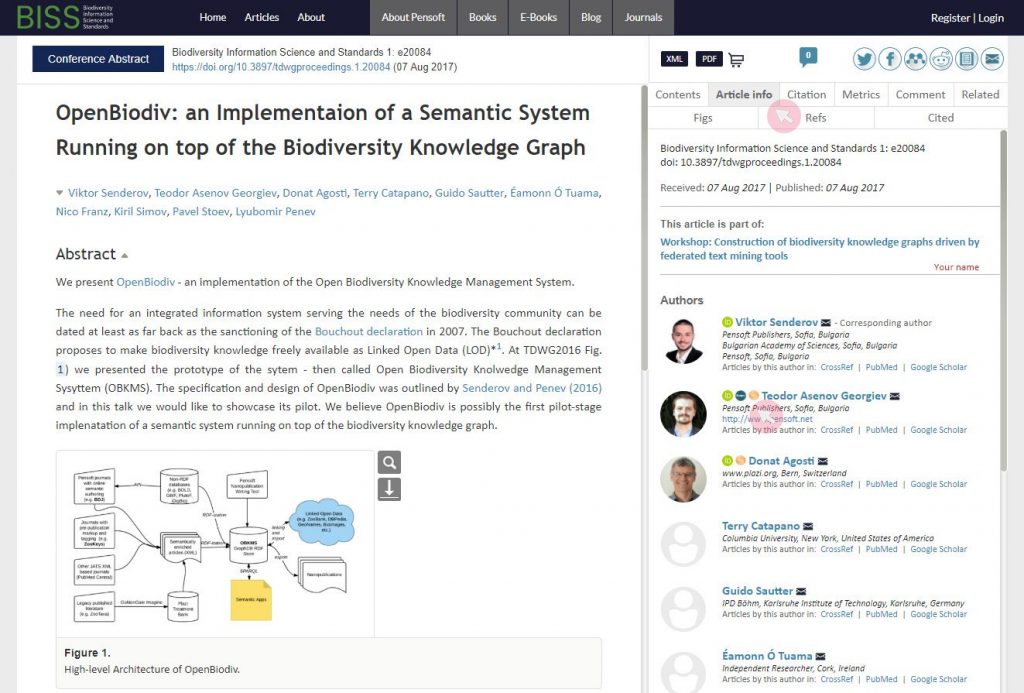
In addition to their ORCID IDs, users at any ARPHA-hosted journal can add their Web of Science ResearcherID and SCOPUS ID to their user profiles to ensure further seamless connectivity between their identity and professional activities. Once they do so, the corresponding icon(s) will show up next to their names every time they appear in an authors list across ARPHA-associated journals.
While ORCID IDs automatically link users to their work published on ORCID-integrated platforms (records can also be added manually), a Web of Science ResearcherID – which of recently is managed by Publons – creates a link between a researcher’s peer review and editorial contributions and their Web of Science Core Collection-indexed publications. Similarly, Scopus Author IDs connect Scopus-indexed publications with their authors’ profiles, including references, citations, h-index and subject areas.
Pending tasks visualised for each reviewer and Subject editor to facilitate and speed up the editorial process
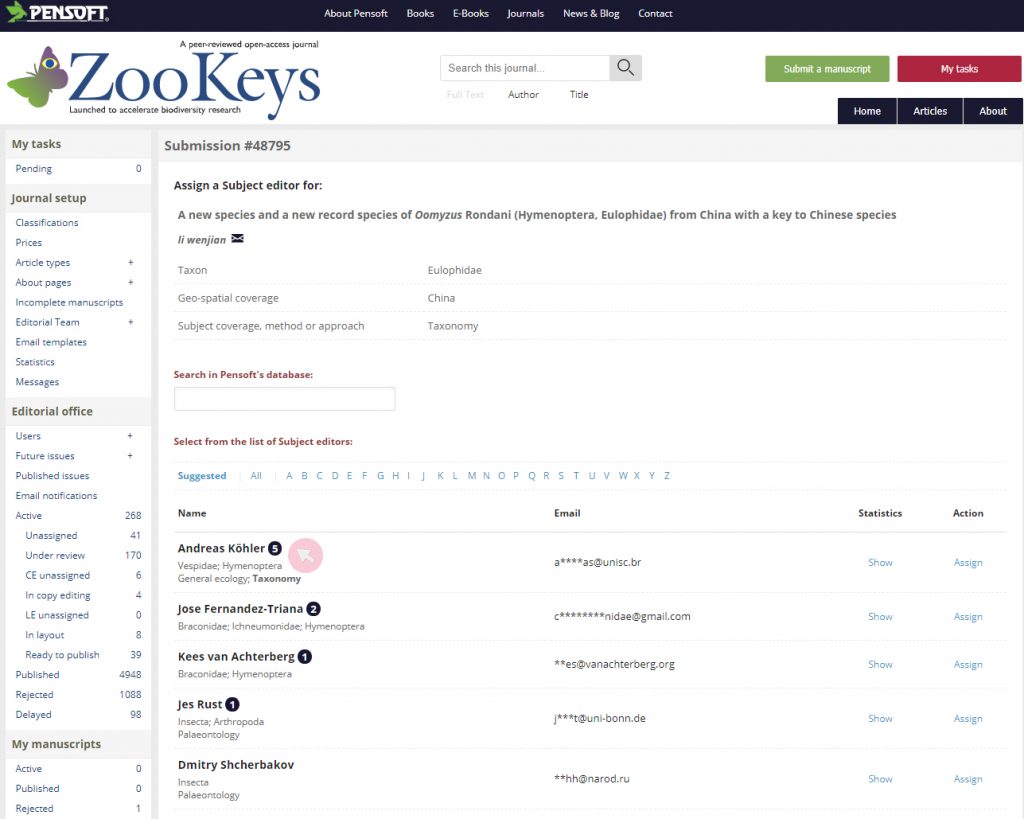
Even though the high-tech and user-friendly infrastructure available from ARPHA Platform substantially reduces the time between a manuscript’s acceptance, publication, dissemination, archiving and indexing, we do realise that, technology-wise, there is little to be done in order to expedite the manual labour performed by overburdened editors and reviewers.
This is why we’ve made it possible for an editor to see how many tasks any Subject editor or reviewer is currently handling whenever he/she gets to assign a manuscript.
Multilingualism on a journal AND platform level
Despite the ceaseless globalisation in the scholarly landscape, we can’t fail to recognise that there are, and perhaps will always be, academic journals whose specific scope and readership would do best if the content is also available in additional languages apart from English.
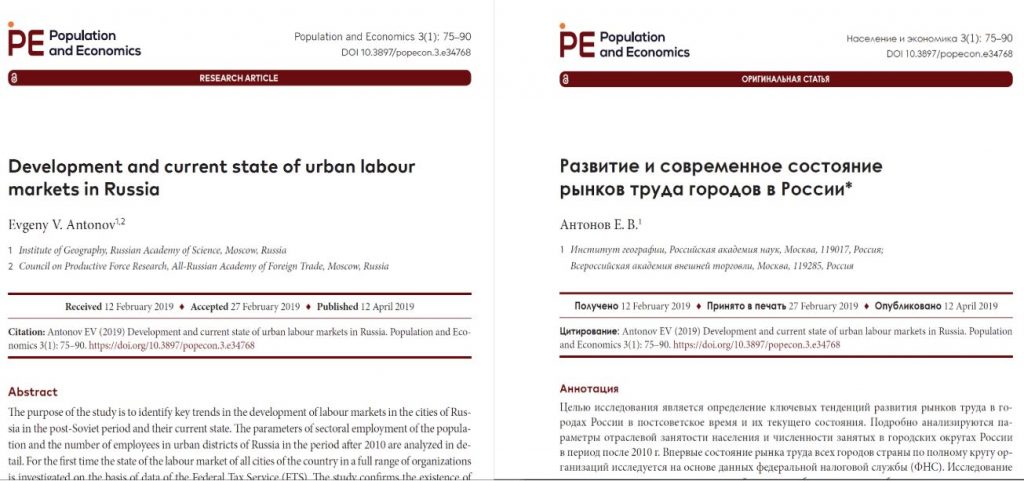
When we welcomed Population and Economics in April, the renowned Moscow State University’s journal became the first ARPHA-hosted scholarly title to accommodate our bilingual approach allowing for the reader to download a PDF copy of an article in Russian straight from its webpage. To avoid potential confusion in references, citations etc., both the Russian- and the English-language articles are using the same DOI.

Happy with the positive feedback from our clients and motivated by the soaring number of similar requests coming from potential client journals, we continued investing in the full transformation of ARPHA into a multilingual platform.
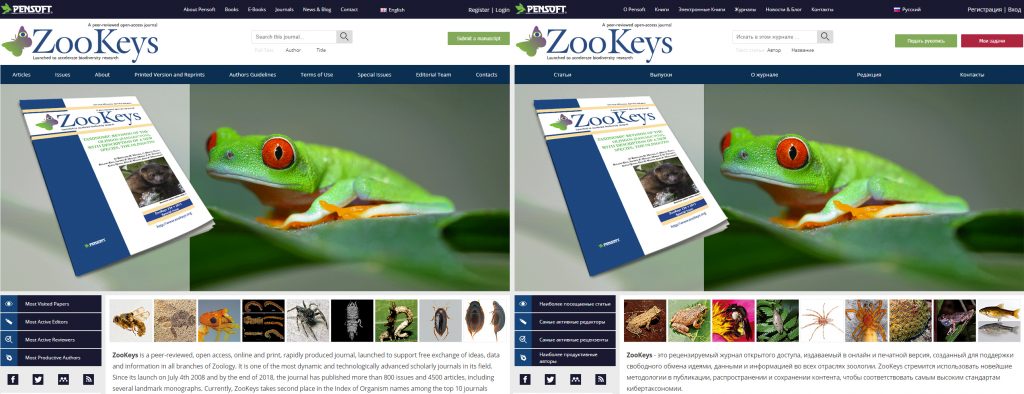
As a result, clients of ARPHA can now opt for our bilingual solution, where it is entirely up to the individual user to toggle between the English and Russian interface of the journal.
We’ve already started working on adding more languages to make sure that ARPHA is truly multilingual and international-friendly!
ARPHA-Proceedings inaugural issue
Recently, we also saw the publication of the inaugural issue of conference proceedings submitted to our self-titled innovative platform.
A total of 150 papers (1,496 pages) were made available in PDF format, in order to demonstrate a snapshot of the latest research on personal and professional development of teachers from around the world, as presented at the V International Forum on Teacher Education (29-31 May 2019, Kazan Federal University, Russia).
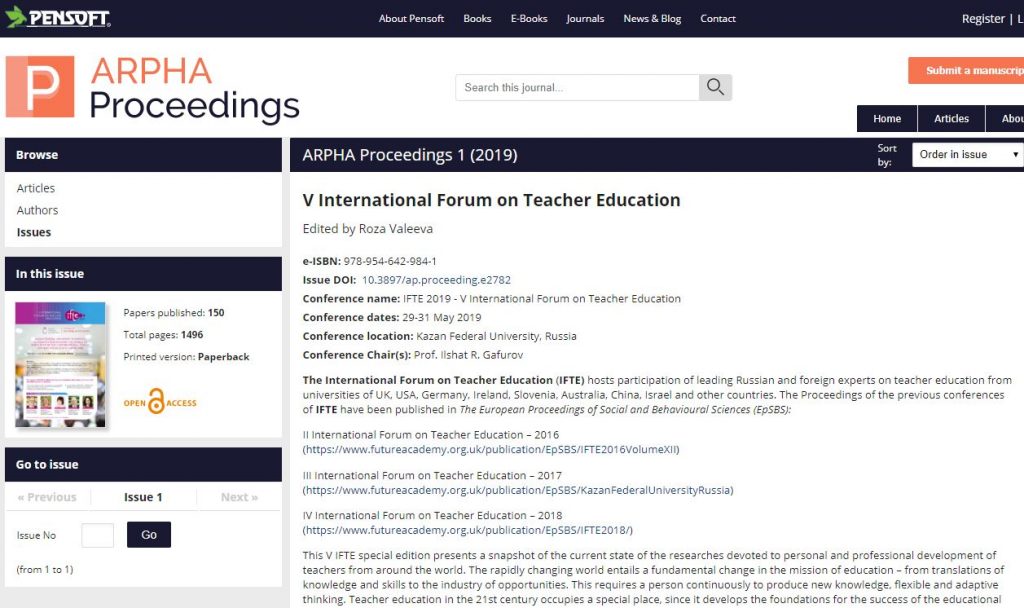
Aimed at conference organisers from across all scientific fields, ARPHA Proceedings allows for the publication of dedicated issues, where conference papers are published along associated data, figures and citations. Additionally, video recordings, posters and presentations can be uploaded in bulk once the conference is over.
Individual conference papers as well as complete volumes are assigned with their own DOIs, which are registered by ARPHA in full compliance with CrossRef’s metadata requirements for conference materials.
Historical issues of Dutch journal of Accountancy & Business Economics (MAB) republished by modern standards
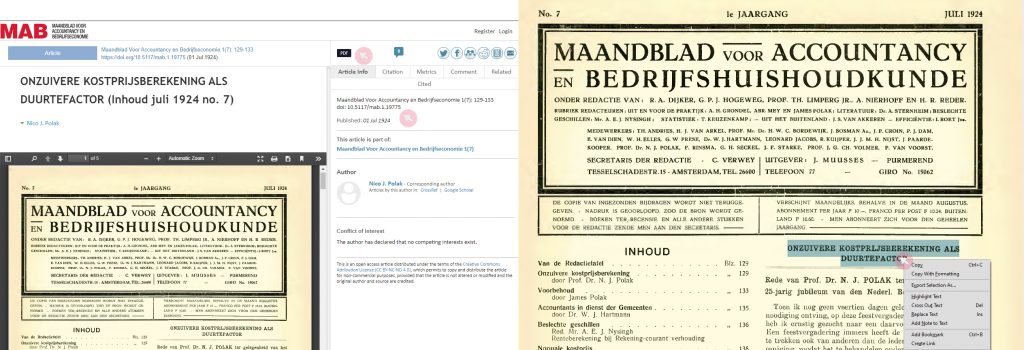
Backlist volumes of the Dutch Journal of Accountancy & Business Economics (Maandblad voor Accountancy en Bedrijfseconomie (MAB)) dating back to 1924 were re-issued, in order to cover the whole existence of the renowned scholarly outlet.
As a result, not only are all papers published in MAB in the last 95 years openly accessible from a single online source, but they also take full advantage of the technology normally available to modern research outputs. These include a DOI assignment and CrossRef registration of metadata for each individual study. A full-text search of an article’s content is available with the PDF copy.
MAB, a journal by Amsterdam University Press, moved to our platform using ARPHA’s white label publishing solution last year. ARPHA’s white label publishing is targeted primarily to university presses, independent publishers and societies seeking to retain their identity in an increasingly competitive high-tech environment.
A whole new batch of web integrations available to clients
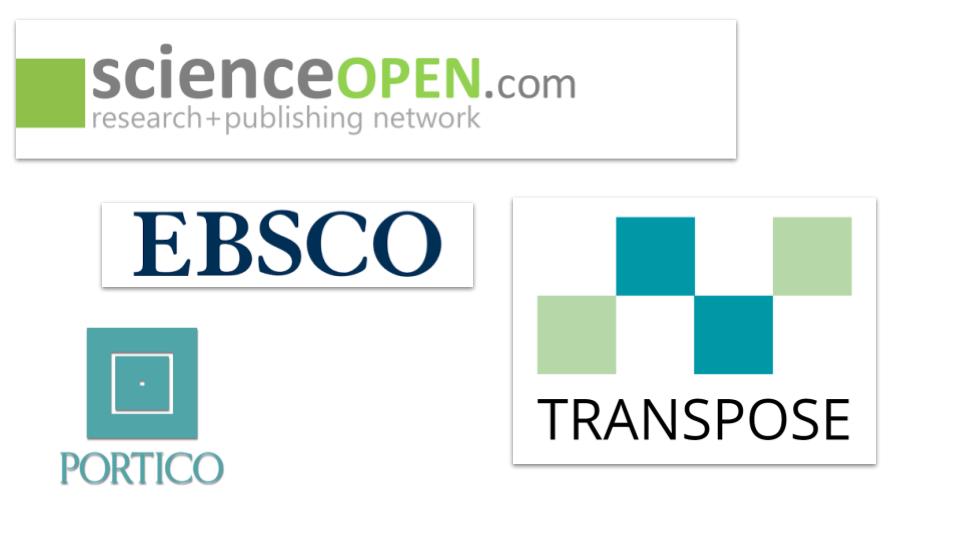
Most recently, Pensoft and ARPHA signed a strategic collaboration agreement with the research discovery platform ScienceOpen, which means that content from all ARPHA-hosted journals will be indexed in the ScienceOpen’s research and discovery environment and added within the thematic context of over 60 million articles and books.
Earlier in 2019, ARPHA was integrated with several other research databases, including Portico, EBSCO and Transpose, so that content published across the journals is even easier to discover and access and ultimately facilitating the citability, reusability and reproducibility of scientific research.
A list of all web-service integrations available to ARPHA-hosted journals is available on our website.
Subscribe to our blog’s newsletter and follow us on Twitter to keep yourself posted about the next features and updates coming to ARPHA!
